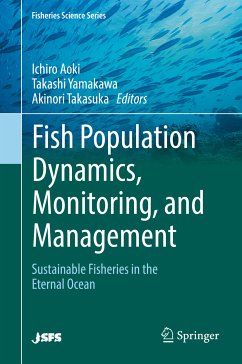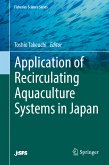This book explores how we can solve the urgent problem of optimizing the use of variable, uncertain but finite fisheries resources while maintaining sustainability from a marine-ecosystem conservation perspective. It offers readers a broad understanding of the current methods and theory for sustainable exploitation of fisheries resources, and introduces recent findings and technological developments. The book is divided into three parts: Part I discusses fish stock dynamics, and illustrates how ecological processes affecting life cycles and biological interactions in marine environments lead to fish stock variability in space and time in major fish groups; small pelagic fish, demersal fish and large predatory fish. These insights shed light on the mechanisms underlying the variability in fish stocks and form the essential biological basis for fisheries management. Part II addresses the technologies and systems that monitor changes in fisheries resources and marine ecosystems using two approaches: fishery-dependent and fishery-independent data. It also describes acoustic surveys and biological sampling, as well as stock assessment methods. Part III examines management models for effectively assessing the natural variability in fisheries resources. The authors explore ways of determining the allowable catch in response to changes in stock abundance and how to incorporate ecological processes and monitoring procedures into management models. This book offers readers a broad understanding of sustainable exploitation as well as insights into fisheries management for the next generation.
Dieser Download kann aus rechtlichen Gründen nur mit Rechnungsadresse in A, B, BG, CY, CZ, D, DK, EW, E, FIN, F, GR, HR, H, IRL, I, LT, L, LR, M, NL, PL, P, R, S, SLO, SK ausgeliefert werden.









